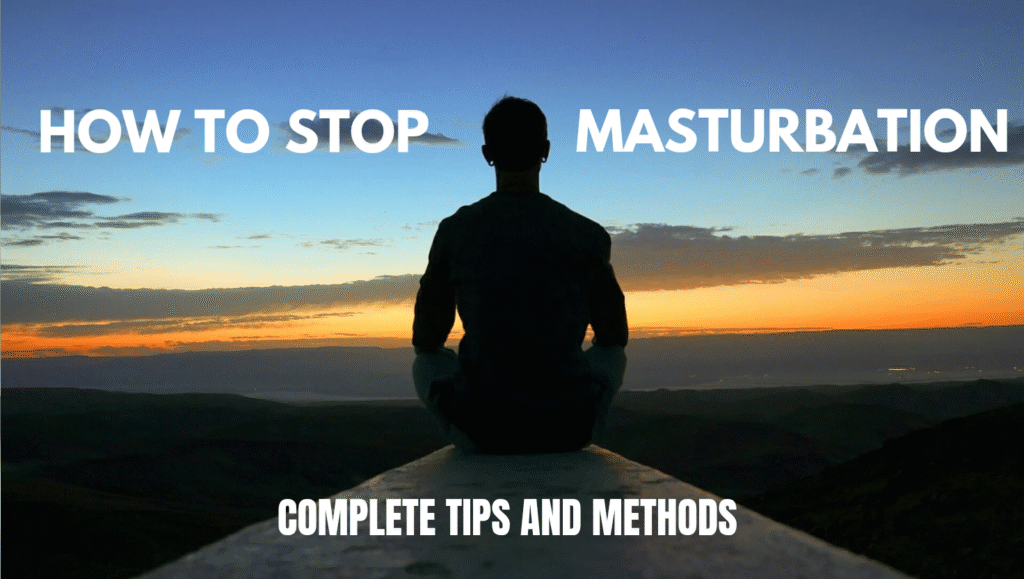How to Stop Masturbation: Comprehensive Tips, Science-Backed Strategies, and Healthy Alternatives

- Introduction
- Understanding the Urge
- Tips & Tricks to Stop Masturbation
- 1. Identify Your Triggers
- 2. Create a Structured Routine
- 3. Limit Access to Triggers
- 4. Channel Energy into Physical Activity
- 5. Practice Mindfulness & Meditation
- 6. Replace the Habit
- 7. Change Your Environment
- 8. Set Realistic Goals
- 9. Seek Support
- 10. Forgive Yourself & Stay Positive
- Healthy Alternatives to Masturbation
- Psychological Insights
- When to Seek Professional Help
- Conclusion
Introduction
Masturbation is a natural and common behavior, but for some, it can become a compulsive habit that affects daily life, relationships, productivity, or self-esteem. If you’re seeking to reduce or stop masturbation, know that you are not alone and that change is possible. This guide offers practical, science-backed strategies, psychological insights, and alternative activities to help you regain control and build a healthier, more fulfilling lifestyle.
Understanding the Urge
Before you can change a habit, it’s important to understand why it exists. Masturbation can be a response to boredom, loneliness, stress, anxiety, or even as a way to avoid difficult emotions. Recognizing your personal triggers is the first step toward change.
Tips & Tricks to Stop Masturbation
1. Identify Your Triggers
- Keep a diary or journal to note when and why the urge arises.
- Are you alone, stressed, or using your phone late at night? Patterns will emerge.
2. Create a Structured Routine
- A predictable schedule leaves less idle time for urges to arise.
- Plan your day with work, hobbies, exercise, and social time.
3. Limit Access to Triggers
- Use website/app blockers to avoid adult content.
- Keep your phone/laptop out of the bedroom at night.
4. Channel Energy into Physical Activity
- Exercise releases endorphins and reduces stress.
- Try running, swimming, yoga, or team sports to tire your body and mind.
5. Practice Mindfulness & Meditation
- Mindfulness helps you notice urges without acting on them.
- Meditation strengthens self-control and reduces anxiety.
6. Replace the Habit
- When you feel the urge, immediately switch to another activity:
- Go for a walk
- Call a friend
- Read a book
- Play a musical instrument
7. Change Your Environment
- Rearrange your room or workspace to break associations.
- Avoid being alone in places where you usually masturbate.
8. Set Realistic Goals
- Don’t expect to quit overnight.
- Set small, achievable goals (e.g., “I will go one week without it).
9. Seek Support
- Talk to a trusted friend, family member, or counselor.
- Join online support groups if you’re comfortable.
10. Forgive Yourself & Stay Positive
- Relapses can happen; don’t be too hard on yourself.
- Focus on progress, not perfection.
इस एक गलती से लाखों निवेशक पैसे गंवा चुके हैं – क्या आप भी कर रहे हैं यही?
शेयर बाजार में निवेश करना जितना आकर्षक लगता है, उतना ही जोखिम भरा भी है।…
Watch Dhakad’s Viral Video: Delhi-Mumbai Expressway Scandal Shakes Madhya Pradesh Politics
BREAKING: BJP-Backed Leader Manohar Lal Dhakad’s Viral Expressway Video Sparks Outrage, Arrest, and Political Storm…
How to ensure financial security even with low income: Expert advice
How to save even with low income: easy and effective ways Saving money on a…
Defence Stocks: Smart Profit Booking Strategies (Proven & Tested)
How Defence Stocks Have Performed: A Quick Recap Long-Term Surge: The Nifty Defence Index soared by 350%…
THIS YEAR MAKE DIWALI LIGHT FULL WITH THIS LIGHTNING STOCKS
Diwali Stocks to Hold Till Diwali 2025: Festive Picks for a Prosperous Portfolio As Diwali…
ZEN TECHNOLOGY IS IT STILL WORTHY?? CHECK IT OUT
Zen Technologies: India’s Defense Simulation Innovator – Full Company Analysis (2025) Introduction Zen Technologies Limited…
Healthy Alternatives to Masturbation
- Creative Hobbies Drawing, painting, music, writing, cooking.
- Physical Fitness Join a gym, dance, practice martial arts.
- Learning Take up a new language, online course, or instrument.
- Social Activities Spend time with friends/family, volunteer.
- Spiritual Practices Meditation, yoga, prayer.
Psychological Insights
- Habit Loop: Masturbation can become a habit loop-trigger, action, reward. Breaking the loop requires awareness and substitution.
- Dopamine Cycle: Excessive masturbation can desensitize your brain’s reward system. Reducing frequency helps restore natural motivation and pleasure.
- Self-Compassion: Shame and guilt can worsen the cycle. Approach change with kindness and patience.
When to Seek Professional Help
If masturbation feels out of control, causes distress, or interferes with your work, relationships, or mental health, consider consulting a psychologist, psychiatrist, or counselor.
Conclusion
Quitting or reducing masturbation is a journey that requires self-awareness, patience, and positive lifestyle changes. By understanding your triggers, building a supportive environment, and filling your life with meaningful activities, you can regain control and boost your confidence. Remember, progress is more important than perfection, and seeking help is a sign of strength, not weakness.
You are not alone. Healthier habits and a happier, more fulfilled life are within your reach




